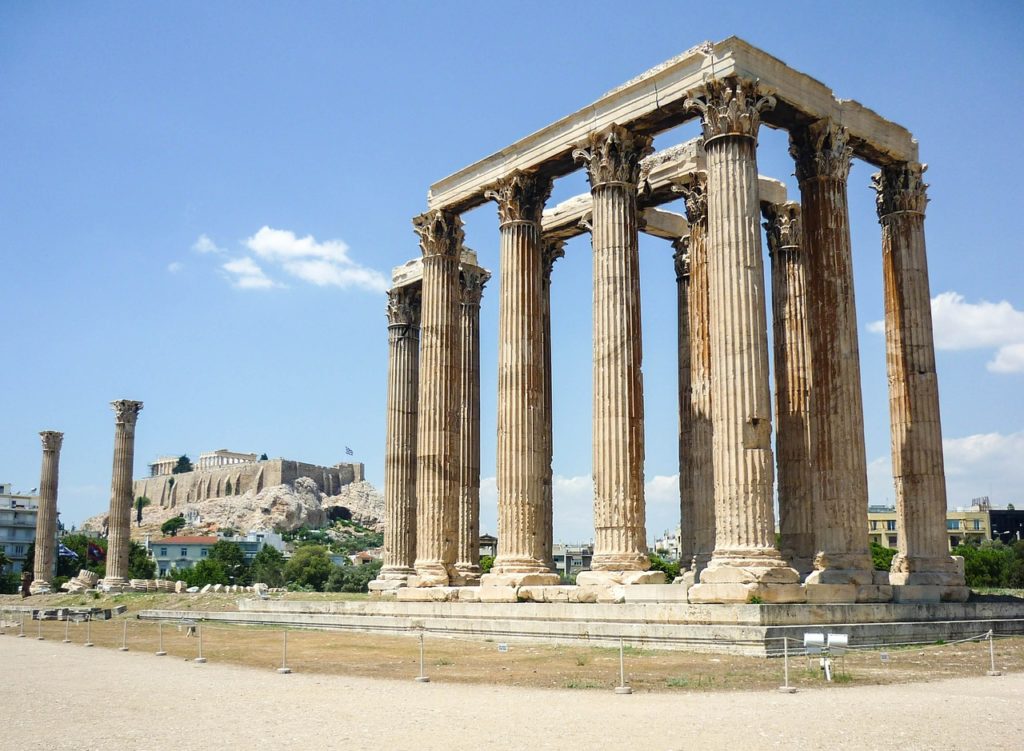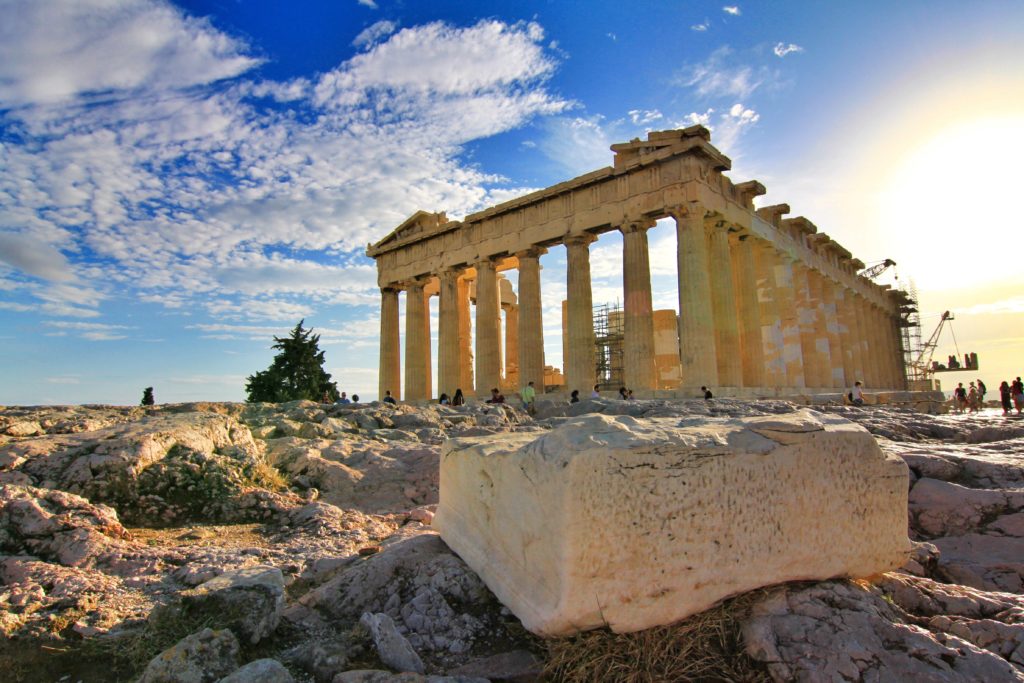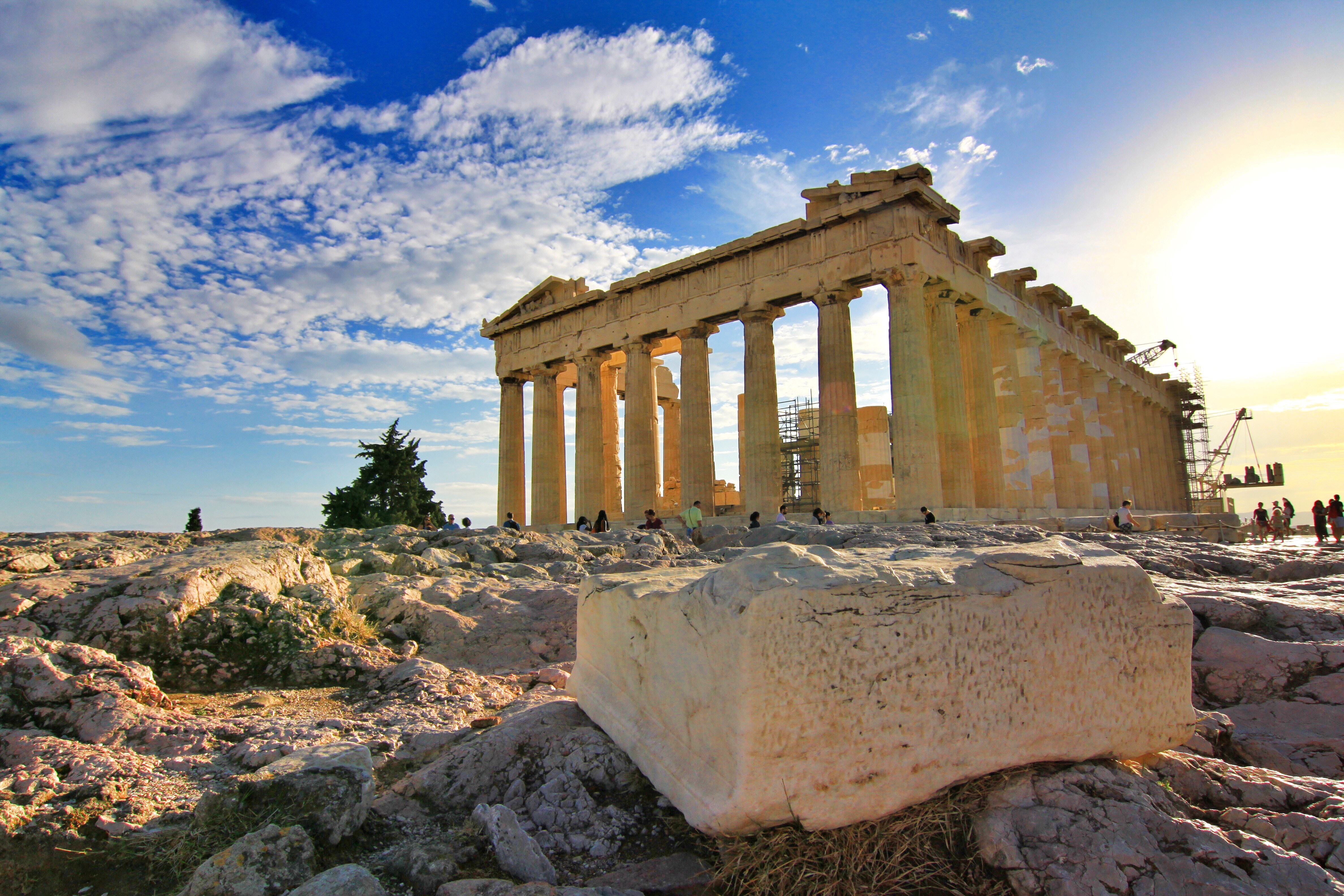Editor’s Note: This is the second entry in a series looking at the three schools of philosophy for perspectives on relationships in our modern world. Inspired by Emerson’s “The American Scholar,” we are exploring timeless wisdom which endures to inform our approaches to learning, relationships and leadership. Click here for all the posts in this series.
As with all myths and stories that endure for centuries, there is plenty to glean about human relationships from Sophocles’ Antigone. Themes of honor, hubris, and emotion, collide with reason and civic duty, asking characters and readers alike to discover where their values lie. The four themes from Antigone explored in this article are hubris, reason, honor, and civic duty; how they influence one another and how navigating them influences society. In the second half of the piece, we will discuss how these themes can impact our learning, relationships and abilities to lead.
Hubris
Hubris refers to the foolishness of excessive pride. We see hubris demonstrated in Creon’s initial declaration, his subsequent decision to have Antigone imprisoned, and his confrontation with Haimon. So excessive is this pride that it’s only when he is explicitly told he has angered the gods that Creon pauses to consider he may have acted wrongly. The Athenians found hubris an especially grievous crime, and it is often depicted in their works as leading to death. Accordingly, it occupies a central theme in Ancient Greek writings; Sophocles’ Oedipus Rex and Ajax are two famous examples, along with Homer’s Odyssey.
Our introduction to Creon illustrates his hubris; the new king has gathered the wise men of the city, not for discussion, but to inform them of his decision regarding his fallen nephews. Over the course of events, Creon also represents unbridled emotion, specifically in two key exchanges, the first in response to a suggestion that the gods were unhappy with his declaration about Polyneices’ body, and the second in stark contrast to Haimon’s appeal to reason. Creon rages at the chorus leader:
“Is it your senile opinion that the gods love to honor bad men?”
The tendency of ego to be driven to emotional extremes should serve as an example to us to remain humble. Creon had just ascended the throne, after the quick deaths of his predecessor and his two sons, none of which sparked humility in the new king. Humility reminds us that we each have a limited time, and should strive to do the best we can with the tools at our disposal. Ego seeks to exert its own will, regardless of morals or other perspectives. Humility takes a step back to look at the bigger picture, and acknowledges that honor and moral values help society to function well. Ego discounts outside perspectives and proceeds on without regard for counsel or wisdom. Then as now, ego drives dictators to tyranny.
Creon makes the fatal mistake of assuming the State’s laws – his laws – would be honored by the gods. By putting the proverbial cart before the horse, Creon all but assures his rule will be out of step with the will of the gods. This conflict speaks to the need for leaders to enact just laws, which are inspired by and conform to higher ideals. We’ve seen examples throughout history of unjust laws and rulers being forcefully dismissed; from dictators being toppled to the Civil Rights Act being passed in the United States . When laws fail to align with morality, they are unjust.
Reason
The Athenians, and Greeks regarded reason very highly; it was considered the guiding light of democracy. As illustrated by Plato’s philosopher kings and the Greeks’ high regard for the discussion of ideas and observations, the discipline of reasoning was considered a most important factor in ruling well. We can trace this embrace of reason through history, culminating in the Enlightenment serving to throw open the gates for science, philosophy, and humanism to emerge.
Haimon represents the role of reason in opposition to hubris. He attempts to appeal to Creon’s reason in order to show him that he has misstepped both in his declaration regarding Polyneices and sentence on Antigone. His tragic demise shows how destructive hubris and emotion are to reason and effective ruling.
“Reason is God’s crowning gift to man…”
In the second of Creon’s two emotional exchanges, he is responding to Haimon’s charge about how unreasonable his choices have been. As the conversation grows more heated, Haimon’s responses grow more pointed, :
“It is no city if it takes orders from one voice,”
essentially calling his father a tyrant, and again,
“How about you, in a public brawl with justice?”
Haimon is referencing that just leaders take into account the opinion of the people and rule with that in mind, rather than thinking themselves to be the only reasonable or capable person.
Reason and honor both rely on what can be observed, namely, actions. They are also dependent on discussion and conclusion to arrive at what is reasonable or honorable or not. Both are critical to a functioning society, as Haimon touches on.
Honor
What do we mean by the term “honor”? Ancient Greeks considered it the worth or value of an individual to the community. Honor was gained or diminished in their society based on the actions or inactions of the individual. Today, we consider honor to be a good name or reputation. The play also raises the question of civic vs moral duties, here with the moral duty outweighing the civic.
Antigone’s legacy is that of a young woman standing for honor, even in the face of certain death. When questioned by the king, she unwaveringly responds that the moral impetus drove her decision:
“Your edict, King, was strong,
But all your strength is weakness itself against
The immortal unrecorded laws of God.”
Antigone illustrates that unjust laws are morally required to be broken, as Martin Luther King, Jr. would write centuries later in his Letter from a Birmingham Jail,
“Conversely, one has a moral responsibility to disobey unjust laws. I would agree with St. Augustine that ‘an unjust law is no law at all.’ ”
Demonstrating that Antigone has gained honor for her actions, Haimon informs Creon of the sentiments expressed among the people. The democratic response is clearly in approval of her actions and opposed to the king’s judgment against her. The fact that the populace and the gods were in favor of her actions and honor, even in opposition to Creon’s declaration, should have served as a warning to Creon. The Athenian audience would have understood that an honorable, reasonable, and less emotional ruler would have recognized this and acted in line with morality.
Only appearing briefly in the last act, Queen Eurydice’s fate is tied directly to her husband’s egotism. Her suicide upon learning Haimon is dead compounds the grief and regret of Creon, eliminating any chance of his comfort. Again, we see death rewarding the crime of hubris, and illustrating the dishonor Creon has brought his family.
Civic Duty
Ismene serves mainly as the civic foil to Antigone’s heroism. She begins the play with fear and obedience to the law, complying because of the penalty – quite reasonable to most people. Then, as she sees her sister’s determination, she gains courage and chooses honor, as well, eventually coming to support her sister when being questioned by Creon.
The king’s laws demanding civic duty were unjust as they violated the morals of their society and were not implemented by reason, but by ego, and as such, should be broken. The entire city, we are told, views Antigone’s actions and death as honorable and Creon’s decree as a violation of morality. In the end, Creon represents a narrow definition and rigid adherence to civic duty in contrast to Antigone’s moral agency and Haimon’s adherence to reason.

Turning from the traits outlined in the tragedy of Antigone, let’s look at how they can inform our abilities to learn, build relationships, and lead.
Learning
While education is not a central theme, there is much here to glean about learning. The exchange of ideas is prized by the Greeks, and serves as the foundation of democracy, a jewel in the crown of wisdom they’ve bestowed upon the world. Gathering information and perspectives, methods of achieving your goals and objectives, seeking out the wisdom of those who have gone before you are all demonstrated here as preferable actions to Creon’s decision.
Haimon observes that Creon’s advisers are afraid to oppose him because of his temper, resulting in an anemic counsel of advisers. Learning, and implementing that knowledge requires that we seek out, not just stumble across, opinions, values, and perspectives which differ from our own. Indeed, democracy necessitates that we acknowledge and live alongside views with which we disagree. All of this iron sharpening iron results in a well-developed society.
Today, this looks like reading books, finding a mentor, attending conferences, listening to interviews, emailing and asking pertinent questions, etc. The sky is the limit on your ability to learn and implement new ideas. The key here is to be proactive and seek out differing perspectives in order to broaden your own understanding.
“He who knows only his own side of the case knows little of that. His reasons may be good, and no one may have been able to refute them. But if he is equally unable to refute the reasons on the opposite side, if he does not so much as know what they are, he has no ground for preferring either opinion… Nor is it enough that he should hear the opinions of adversaries from his own teachers, presented as they state them, and accompanied by what they offer as refutations. He must be able to hear them from persons who actually believe them…he must know them in their most plausible and persuasive form.”
John Stuart Mill, On Liberty
Relationships
The dialogue between Antigone and Ismene reminds us to be mindful of our actions and inactions. Antigone offers her sister the full opportunity to help her in honoring their brother, but Ismene refuses out of fear. Though her choice is understandably human, and abides by civic law, it is not considered especially honorable. When she later attempts to share the blame and honor with her sister, Antigone refuses her, because she did not act when it truly mattered. Ismene pleads,
“But now I know what you meant; and I am here
To join you, to take my share of the punishment.”
“The dead man and the gods who rule the dead
Know whose act this was. Words are not friends.”
Antigone remains steadfast and razor-focused on what honor requires. Acting with honor is worthy of honor. The implication is that honor is tied to what a person does, not on what they say they’ll do or what they claim to believe, despite their actions running contrary to their statements. Truly, we are what we do, not what we say we will do.
Before we can act, though, each of us must seek out and identify what our personal values are. Antigone’s values were clear from the very beginning; to honor her dead brother. After you’ve determined your personal values, and seen how they translate into practices, all that is left is to act in step with them. In his book Atomic Habits, James Clear frames habits as votes for or against the identity we choose for ourselves. If I want to be a person who reads regularly, then I must open a book and read each day, thus casting a vote for that identity. Similarly, if you choose to be a moral person, you must act in accordance with your morals.
Leadership
Finally, the role of leadership is perhaps where the examples of Creon and Antigone contrast most sharply. Creon demonstrates the harm inflicted by emotional, ego-driven leadership. Because Creon operates from a place of assuming he is the only man worthy of the throne, and falls into the trap of thinking he alone is wise enough to rule, he never gives reason an opportunity. He draws a stark line in the sand from the very beginning, putting his laws at odds with those of the gods, and continues down that path until ruin is upon him, refusing to listen to wisdom (Teiresias, the prophet) or reason (Haimon, his son).
Haimon employs an excellent metaphor describing trees in the midst of floods; the ones who remain pliable and bend to the winds of the storm end up protecting themselves and surviving. The rigid, unrelenting trees end up broken and destroyed.
“Remain firm about your goals, but flexible about your methods.”
attributed to William A. Donohue
We see that a leader should consult reason, and implement laws which line up with both reason and morality. Also, that emotional, ego-centric decisions are undesirable traits from those in leadership positions. Instead, humility and reason are the traits which should inform our conduct and our decisions.
The themes illuminated in Antigone are timeless, and as old as civilization, yet we still struggle with them daily. We should allow the plights of Antigone and Haimon to remind us to remain humble, seek out wisdom, and stand firm in our convictions.





